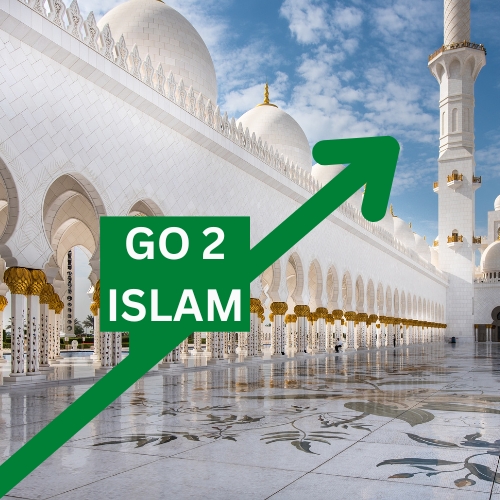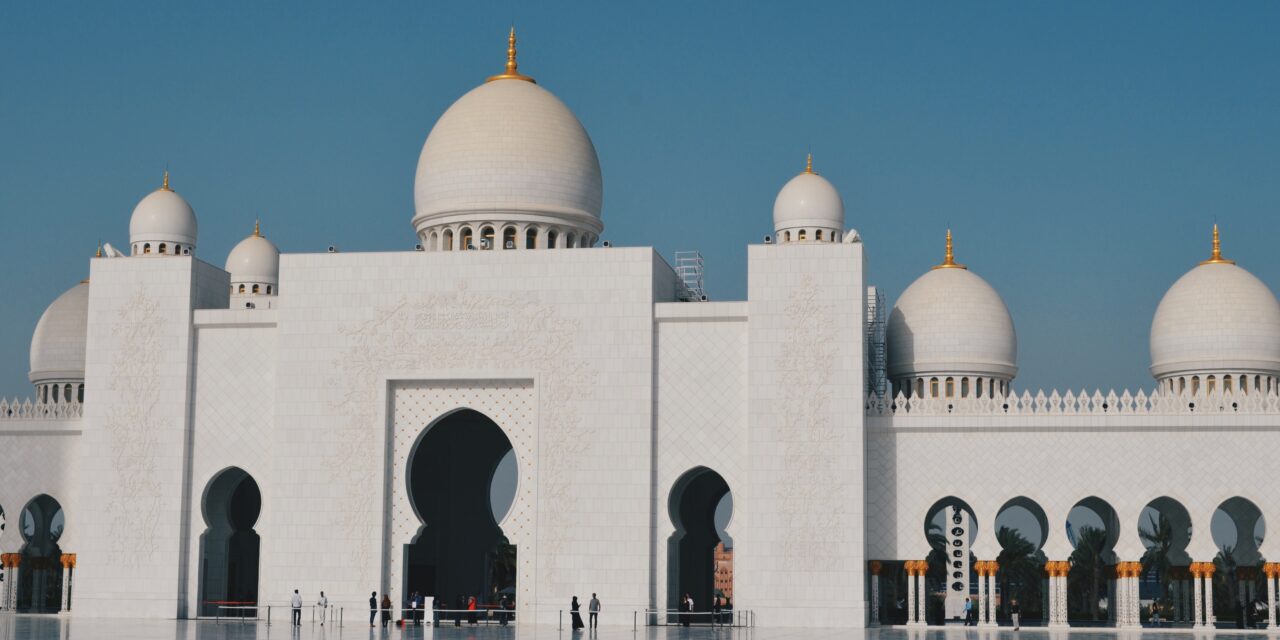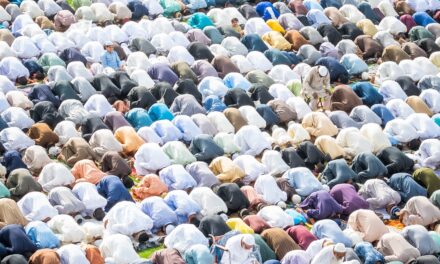1.Islam is a violent religion: This is a common misconception that is perpetuated by the actions of a small minority of extremists who commit acts of terror in the name of Islam. The vast majority of Muslims are peaceful and do not support violence.
Islam is a violent religion: Islam actually promotes peace and prohibits the killing of innocent people. The Quran states, “Whosoever kills an innocent human being, it shall be as if he has killed all mankind, and whosoever saves the life of one, it shall be as if he had saved the life of all mankind” (Quran 5:32).
2. All Muslims are Arab: While a significant number of Muslims are Arab, the majority of Muslims are actually not Arab. Islam is a global religion with followers from many different ethnicities and cultures.
All Muslims are Arab: Islam is a global religion with followers from many different ethnicities and cultures. The Quran states, “O mankind, indeed We have created you from male and female and made you into nations and tribes that you may know one another” (Quran 49:13).
3. Islam oppresses women: This is another misconception. In Islam, women have many rights and are considered equal to men in the eyes of God. However, some Islamic countries may have laws and cultural practices that discriminate against women, but it is not a reflection of Islam.
Islam oppresses women: In Islam, women have many rights and are considered equal to men in the eyes of God. The Quran states, “And their Lord responded to them, ‘Never will I allow to be lost the work of [any] worker among you, whether male or female; you are of one another” (Quran 3:195). However, some Islamic countries may have laws and cultural practices that discriminate against women, but it is not a reflection of Islam.
4. All Muslims are radical: This is not true. A very small minority of Muslims hold extremist views and are considered “radical.” The vast majority of Muslims are moderate and do not support extremism.
All Muslims are radical: A very small minority of Muslims hold extremist views and are considered “radical.” The vast majority of Muslims are moderate and do not support extremism. The Quran states, “And do not let the hatred of a people prevent you from being just. Be just; that is closer to righteousness” (Quran 5:8)
5. Islam is a new religion: Islam is actually one of the oldest monotheistic religions in the world, with a history dating back to the 7th century.
Islam is a new religion: Islam is actually one of the oldest monotheistic religions in the world, with a history dating back to the 7th century.
6. Islam is not compatible with democracy: Many Islamic countries have democratic governments and Islamic teachings are not incompatible with democracy.
Islam is not compatible with democracy: Many Islamic countries have democratic governments and Islamic teachings are not incompatible with democracy.
7. Islam is a unified religion: Like any other religion, there are different sects and interpretations of Islam.
Islam is a unified religion: Like any other religion, there are different sects and interpretations of Islam.
8. The Quran promotes violence: The Quran actually prohibits the killing of innocent people and promotes peace and tolerance. The Quran promotes violence: The Quran actually prohibits the killing of innocent people and promotes peace and tolerance.
- “And do not kill the soul which Allah has forbidden, except by right. And whoever is killed unjustly – We have given his heir authority, but let him not exceed limits in [the matter of] taking life. Indeed, he has been supported [by the law].” (Quran 17:33)
- “And if anyone kills a believer intentionally, his recompense is Hell to abide therein [forever], and the wrath and the curse of Allah are upon him, and a great punishment is prepared for him.” (Quran 4:93)
- “And do not let the hatred of a people prevent you from being just. Be just; that is closer to righteousness.” (Quran 5:8)
9. Islam is only for Middle Easterners: Islam is a global religion with followers from many different ethnicities and cultures.
Islam is only for Middle Easterners: Islam is a global religion with followers from many different ethnicities and cultures.
“O mankind, indeed We have created you from male and female and made you into nations and tribes that you may know one another.” (Quran 49:13)
“And We have not sent you, [O Muhammad], except as a mercy to the worlds.” (Quran 21:107)
“Say, ‘O mankind, indeed I am the Messenger of Allah to you all, [from Him] to whom belongs the dominion of the heavens and the earth. There is no deity except Him; He gives life and causes death.’ So believe in Allah and His Messenger, the unlettered prophet, who believes in Allah and His words, and follow him that you may be guided.” (Quran 7:158)
10. All muslims are terrorist: This is completely false, terrorist can come from any religion or non-religion. The act of terrorism is not limited to any one group of people and it is not reflective of the religious beliefs of the majority of Muslims
All Muslims are terrorist: This is completely false, terrorist can come from any religion or non-religion. The act of terrorism is not limited to any one group of people and it is not reflective of the religious beliefs of the majority of Muslims.
“But if they incline to peace, you also incline to it and trust in Allah. Indeed, He is the Hearing and Knowing.” (Quran 8:61)
“And do not let the hatred of a people prevent you from being just. Be just; that is closer to righteousness.” (Quran 5:8)
“And cooperate in righteousness and piety, but do not cooperate in sin and aggression. And fear Allah; indeed, Allah is severe in penalty.” (Quran 5:2)

Benefits Of Reading The Holy Quran?
Reading the Quran, the holy book of Islam, can bring many benefits to the reader. Some of the main benefits include:
- Spiritual guidance: The Quran is a source of guidance and wisdom for Muslims, providing teachings and insights on how to lead a righteous and fulfilling life. It teaches about the oneness of God, the importance of moral values such as compassion, justice, and humility, and the purpose of human existence.
- Connection to God: Reading the Quran can help to deepen one’s connection to God and increase one’s understanding of their faith. It can also help to increase one’s awareness of God’s presence in their life.
- Increased knowledge: The Quran is a rich source of knowledge and information about various aspects of life, including ethics, history, and science. Reading the Quran can help to expand one’s understanding of these topics and provide new perspectives.
- Self-improvement: The Quran contains many teachings and examples that can help individuals to improve their character and behavior. It can help to increase one’s awareness of their own flaws and weaknesses, and provide guidance on how to overcome them.
- Peace and tranquility: Reading the Quran can bring a sense of peace and tranquility to the reader’s mind and soul, as it reminds them of the ultimate purpose of life and the eternal nature of the soul.
- Emotional and Mental well-being: The Quran is a powerful source of inspiration and comfort. It provides words of hope and encouragement, which can help to alleviate feelings of sadness, anxiety, and hopelessness. Reading the Quran can also help to increase one’s sense of inner strength and resilience, allowing them to cope better with life’s challenges.
- Personal growth and development: The Quran provides guidance on how to lead a meaningful and purposeful life. It encourages individuals to constantly strive for self-improvement and to make the most of their talents and abilities.
- Cultural and Historical understanding: The Quran provides a window into the culture and history of the Middle East, where the religion of Islam originated. It also provides insight into the daily life and practices of the people of that time period.
- Promotes Unity and Tolerance: The Quran teaches about the importance of unity and tolerance among all people, regardless of their background or beliefs. It promotes the idea that all human beings are equal in the eyes of God, and that it is important to respect and accept one another’s differences.
- A sense of belonging: The Quran is a source of guidance and inspiration for Muslims, reading it can help to strengthen one’s sense of identity and belonging within the Muslim community. It can also help to increase one’s sense of connection to the larger Muslim community around the world.
It’s important to note that reading the Quran alone is not enough, one should also try to understand its message and apply it to one’s life. It’s also recommended to read it in a language that one can understand and seek help if they have difficulties understanding it.
what will non-muslims benefit from reading the Quran?
Non-Muslims can also benefit from reading the Quran. Some of the benefits include:
- Understanding of Islam: The Quran is the central religious text of Islam, and reading it can help non-Muslims to gain a better understanding of the religion and its teachings.
- Cultural and historical understanding: The Quran provides a window into the culture and history of the Middle East, where the religion of Islam originated. It also provides insight into the daily life and practices of the people of that time period.
- Promotes Tolerance and Understanding: The Quran teaches about the importance of unity and tolerance among all people, regardless of their background or beliefs. Reading it can help non-Muslims to understand the values of the Muslim community and to see the similarities between different religions.
- Personal Growth and Development: The Quran contains many teachings and examples that can help individuals to improve their character and behavior. It encourages individuals to constantly strive for self-improvement, and non-Muslims can also benefit from this perspective.
- Knowledge and understanding of the Middle East and Islamic culture: Reading the Quran can help non-Muslims to gain a deeper understanding of the Middle East and Islamic culture. This can be particularly beneficial for those who work or study in fields related to the Middle East, such as politics, history, or international relations.
- A deeper understanding of the monotheistic religions: The Quran, like the Bible and the Torah, is a monotheistic religious text. By reading it, non-Muslims can gain a deeper understanding of the commonalities and differences between the three monotheistic religions.
It’s important to note that reading the Quran alone is not enough, one should also try to understand its message and context. It’s also recommended to read it with an open mind and to seek help if they have difficulties understanding it, or to consult with scholars who can provide explanations and context.
Does the Quran advocate violence against non muslims?
No, the Quran does not advocate violence against non-Muslims. In fact, it teaches that all human beings are equal in the eyes of God and that it is important to respect and accept one another’s differences.
The Quran states, “There shall be no compulsion in [acceptance of] the religion” (Quran 2:256) and “And do not let the hatred of a people prevent you from being just. Be just; that is closer to righteousness” (Quran 5:8).
The Quran also teaches that all human beings are equal and that it is important to respect and accept one another’s differences. It states, “O mankind, indeed We have created you from male and female and made you into nations and tribes that you may know one another” (Quran 49:13)
Additionally, the Quran prohibits the killing of innocent people and promotes peace and tolerance. It states “And do not kill the soul which Allah has forbidden, except by right. And whoever is killed unjustly – We have given his heir authority, but let him not exceed limits in [the matter of] taking life. Indeed, he has been supported [by the law].” (Quran 17:33)
It is important to note that the actions and statements of extremist groups that commit acts of violence in the name of Islam are not representative of the teachings of the Quran, and are condemned by the vast majority of Muslims.







I have read your article carefully and I agree with you very much. This has provided a great help for my thesis writing, and I will seriously improve it. However, I don’t know much about a certain place. Can you help me?